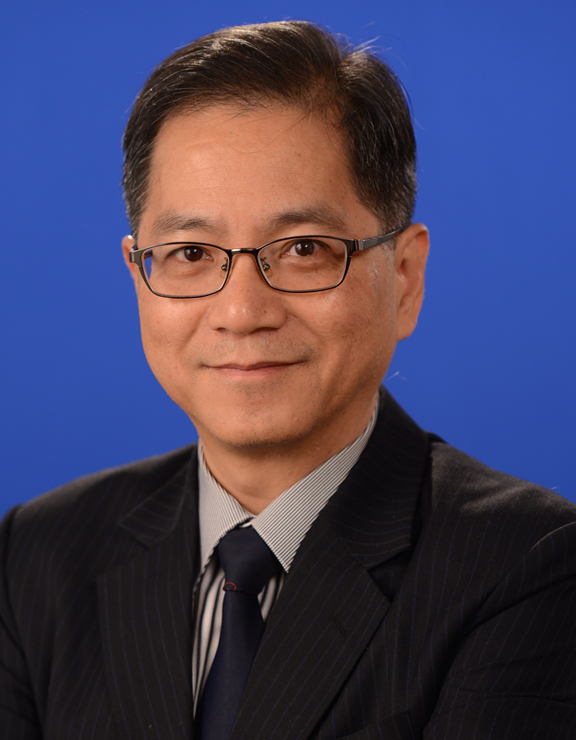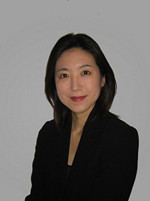
Dennis Y.C. Leung
The University of Hong Kong, China
Prof. Dennis Y.C. Leung received his BEng (1982) and
PhD (1988) from the Department of Mechanical
Engineering at the University of Hong Kong. He
worked in a local power company in Hong Kong for
five years heading the air pollution section of the
company before joining the University of Hong Kong
in 1993. Professor Leung is now a full professor and
ex-Head of the Department of Mechanical Engineering
specializing in environmental engineering and
renewable & clean energy. He has published more than
500 articles in these two areas including 360+ peer
reviewed SCI journal papers. His current h-index is
92 with total citations of 46K. He is one of the top
1% highly cited scientists in the world in energy
field since 2010 (Essential Science Indicators) and
named as Highly Cited Researcher by Clarivate
Analytics from 2017-2022. Stanford University places
him as a top 2% Materials Scientists in the world
ever since the list was produced during 2020.
Currently, he ranks 184/27940 Engineering &
Technology (E&T) Scientists in the world –
representing top 0.66%. He is also ranked top #22
E&T Scientists in China by Research.com. Prof. Leung
has delivered more than 80 keynote and invited
lectures in many international conferences.
Prof. Leung is a chartered engineer, a fellow of the
IMechE, Energy Institute and HKIE. He was also the
Past Chairman of the Institute of Energy (HK
Branch), and served/serves as an editorial board
member and editor of a number of journals including
Applied Energy, Energy Conversion and Management,
Progress in Energy and Applied Sciences. Prof. Leung
also served/serves as chairman and member of a
number of statutory committees and appeal board
panels of the HKSAR government related to
sustainable energy and environment.

Miwako Hosoda
Seisa University, Tokyo, Japan
Dr. Miwako Hosoda, Professor of Seisa University,
Project Researcher of University of Tokyo Institute
of Medical Science, has been conducting her
sociological research though observing human
relations in the healthcare field. Using knowledge
from her prior research on patient advocacy,
healthcare policy, and public participation in
medicine, she has been making collaborative efforts
with local residents with illnesses and disabilities
she had engaged. Together, they are continuing to
seek out ways to help the recovery in their
communities.
Dr. Hosoda graduated from the Department of
Sociology at the University of Tokyo in 1992, and
received an MA and PhD in Sociology from the
University of Tokyo. After working as a research
fellow at the Japan Society for the Promotion of
Science(JSPS), she studied at Columbia University
Mailman School of Public Health as associate, and
Harvard T.H. Chan School of Public Health as
research fellow. Upon returning to Japan, she joined
the Seisa University in 2012 and served as vice
president from 2013 to 2020.
Dr. Hosoda was elected as president of ISA
(International Sociological Association), Research
Committee of Sociology of Health (2018-2023), and
APSA (Asia Pacific Sociological Association
(2017-2020). She is currently Vice President of
APSA, Representative Director of the Japanese
Society for Brain Injury Caring Communities,
Representative Director of IAFA (Inclusive Action
For All).
Title:Planetary Health ‘The health of the planet
is our health’.
Subtitle: An interdisciplinary collaboration between
the natural sciences, humanities and social
sciences.
Abstract: Planetary health is a concept that shows
how the health of the planet is linked to our
health. Using the concept of social determinants of
health (SDH) as a supporting line, the relationship
becomes easier to understand. In this paper, using
the Social Determinants of Health as an
introduction, we want to show that Planetary Health
integrates and links knowledge and practices from
various fields that protect the natural environment
and the global environment, leading to people's
health.
Planetary Health highlights the important linkages
and causal relationships between human health and
environmental change, and the urgent need to review
the relationships between people, society and nature
and find new ways to bring them together In 2015,
the Rockefeller Foundation and The Lancet Commission
concept was launched and has since been developed
into a new health science. Planetary Health seeks
further solutions to global human and environmental
sustainability through cooperation and research
across all sectors, including economics, energy,
agriculture, water and health. What is the
appropriate relationship between people, society and
nature for a sustainable society? How can we create
resilience to disease and disaster? How can we
co-exist with nature and enjoy its benefits?
Recalling the background to the birth of survival
science, and looking at the holistic view of
planetary health, interdisciplinary collaboration
with the natural sciences, humanities and social
sciences is expected to result in both theoretical
and concrete actions to solve today's challenges for
living well on this planet.